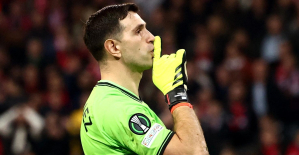No doubt: the CDU was on a roll. A week after the unexpectedly good performance in the early federal elections, Chancellor Helmut Kohl's party was able to extend its absolute majority in the (regular) state elections in Schleswig-Holstein. However, with almost the same turnout (85 to 89.3 percent), the SPD also achieved its best result in the northernmost federal state since 1950.
On the other hand, the FDP, which ended Helmut Schmidt's chancellorship in October 1982 with a change of coalition and helped the CDU chairman to head the government, lost heavily: instead of 6.3 percent of the (only relevant) second votes in the Schleswig-Holstein constituency on On March 6, 1983, the Northern Liberals, who still mourned the loss of the social-liberal coalition (then member of the state executive: a law student named Wolfgang Kubicki), now only achieved 2.2 percent of the votes from the same voters. Clear conclusion: the voters wanted a black-yellow coalition in the federal government, but in Kiel no government participation of the FDP.
The Greens also lost a lot compared to the federal election: Instead of 5.2 percent among Schleswig-Holstein voters, they only reached 3.6 percent a week later. A certain Robert Habeck, who at the age of 13 lived in his native town of Lübeck, where his parents owned a pharmacy, was not yet allowed to vote.
What was remarkable about the victory of the CDU was that the party survived the change of top candidate so well. After all, the long-serving prime minister in Kiel, Gerhard Stoltenberg, only moved to Bonn as federal finance minister in October. His successor was the almost 39-year-old Minister of the Interior in Kiel, Uwe Barschel, who was considered a great political talent. But the young man did not enjoy the official bonus.
"The fundamental wave of the upswing election, which reversed the balance of power in the Federal Republic last weekend, also caught Schleswig-Holstein yesterday," commented WELT editor-in-chief Herbert Kremp: "Here, too, it was hope again that gave voters the voice hand led. Most of them opted for the supposedly higher level of competence.”
The young Prime Minister Barschel quickly gained the trust of the citizens between the North Sea and the Baltic Sea - after the quick change it was "no child's play", said the experienced political journalist Kremp, who had headed the WELT editorial team since 1969 (albeit with interruptions).
According to his assessment, the deciding factor for the result was “the formal destruction of the FDP, which in the north presented itself as the defiantly mourning survivors of the social-liberal coalition”. The voters opted for the originals instead of the torn liberals: the future-oriented Schleswig-Holsteiners voted for the CDU, the social-romantic inclined went to the SPD.
What happened next? The formation of the new state government in Kiel happened quickly, not surprisingly with an absolute majority. The second Barschel cabinet worked largely silently, although the trend was turning against sole government.
Opinion polls predicted a neck-and-neck race for the next state election; the CDU was in danger of losing not only the absolute majority but even the ability to govern in Schleswig-Holstein.
In this context, Barschel, whose goal in life was the chancellorship, resorted to dirty tricks. He hired Reiner Pfeiffer, a failed journalist who launched a campaign to defame SPD lead candidate Björn Engholm. However, Pfeiffer played a false game between the CDU, SPD and the magazine "Der Spiegel".
The day before the regular state elections in 1987, this newspaper published a cover story about Barschel and Pfeiffer, which triggered a political earthquake. The SPD then won easily and became the strongest party, the CDU lost heavily. The Prime Minister, who was about to be replaced, appeared before the press four days later and gave his “word of honour” that there was no truth to the allegations.
A lie, because Pfeiffer had demonstrably worked in the State Chancellery without fulfilling any regular duties. On September 25, Barschel announced his resignation effective October 2 and two days later was found dead in his hotel room in Geneva's Hotel Beau-Rivage.
You can also find "World History" on Facebook. We are happy about a like.

 Sydney: Assyrian bishop stabbed, conservative TikToker outspoken on Islam
Sydney: Assyrian bishop stabbed, conservative TikToker outspoken on Islam Torrential rains in Dubai: “The event is so intense that we cannot find analogues in our databases”
Torrential rains in Dubai: “The event is so intense that we cannot find analogues in our databases” Rishi Sunak wants a tobacco-free UK
Rishi Sunak wants a tobacco-free UK In Africa, the number of millionaires will boom over the next ten years
In Africa, the number of millionaires will boom over the next ten years WHO concerned about spread of H5N1 avian flu to new species, including humans
WHO concerned about spread of H5N1 avian flu to new species, including humans New generation mosquito nets prove much more effective against malaria
New generation mosquito nets prove much more effective against malaria Covid-19: everything you need to know about the new vaccination campaign which is starting
Covid-19: everything you need to know about the new vaccination campaign which is starting The best laptops of the moment boast artificial intelligence
The best laptops of the moment boast artificial intelligence Bitcoin halving: what will the planned reduction in emissions from the queen of cryptos change?
Bitcoin halving: what will the planned reduction in emissions from the queen of cryptos change? The Flink home shopping delivery platform will be liquidated in France
The Flink home shopping delivery platform will be liquidated in France Bercy threatens to veto the sale of Biogaran (Servier) to an Indian industrialist
Bercy threatens to veto the sale of Biogaran (Servier) to an Indian industrialist Switch or signaling breakdown, operating incident or catenaries... Do you speak the language of RATP and SNCF?
Switch or signaling breakdown, operating incident or catenaries... Do you speak the language of RATP and SNCF? The main facade of the old Copenhagen Stock Exchange collapsed, two days after the fire started
The main facade of the old Copenhagen Stock Exchange collapsed, two days after the fire started Alain Delon decorated by Ukraine for his support in the conflict against Russia
Alain Delon decorated by Ukraine for his support in the conflict against Russia Who’s Who launches the first edition of its literary prize
Who’s Who launches the first edition of its literary prize Sylvain Amic appointed to the Musée d’Orsay to replace Christophe Leribault
Sylvain Amic appointed to the Musée d’Orsay to replace Christophe Leribault Skoda Kodiaq 2024: a 'beast' plug-in hybrid SUV
Skoda Kodiaq 2024: a 'beast' plug-in hybrid SUV Tesla launches a new Model Y with 600 km of autonomy at a "more accessible price"
Tesla launches a new Model Y with 600 km of autonomy at a "more accessible price" The 10 best-selling cars in March 2024 in Spain: sales fall due to Easter
The 10 best-selling cars in March 2024 in Spain: sales fall due to Easter A private jet company buys more than 100 flying cars
A private jet company buys more than 100 flying cars This is how housing prices have changed in Spain in the last decade
This is how housing prices have changed in Spain in the last decade The home mortgage firm drops 10% in January and interest soars to 3.46%
The home mortgage firm drops 10% in January and interest soars to 3.46% The jewel of the Rocío de Nagüeles urbanization: a dream villa in Marbella
The jewel of the Rocío de Nagüeles urbanization: a dream villa in Marbella Rental prices grow by 7.3% in February: where does it go up and where does it go down?
Rental prices grow by 7.3% in February: where does it go up and where does it go down? With the promise of a “real burst of authority”, Gabriel Attal provokes the ire of the opposition
With the promise of a “real burst of authority”, Gabriel Attal provokes the ire of the opposition Europeans: the schedule of debates to follow between now and June 9
Europeans: the schedule of debates to follow between now and June 9 Europeans: “In France, there is a left and there is a right,” assures Bellamy
Europeans: “In France, there is a left and there is a right,” assures Bellamy During the night of the economy, the right points out the budgetary flaws of the macronie
During the night of the economy, the right points out the budgetary flaws of the macronie These French cities that will boycott the World Cup in Qatar
These French cities that will boycott the World Cup in Qatar Europa Conference League: the semi-final flies to Lille, which loses to the wire against Aston Villa
Europa Conference League: the semi-final flies to Lille, which loses to the wire against Aston Villa Lille-Aston Villa: Cash disgusts Lille, the arbitration too... The tops and the flops
Lille-Aston Villa: Cash disgusts Lille, the arbitration too... The tops and the flops Handball: Les Bleues in the same group as Spain at Euro 2024
Handball: Les Bleues in the same group as Spain at Euro 2024 Europa Conference League: for Létang, Martinez “does not have the attitude of a high-level athlete”
Europa Conference League: for Létang, Martinez “does not have the attitude of a high-level athlete”


















